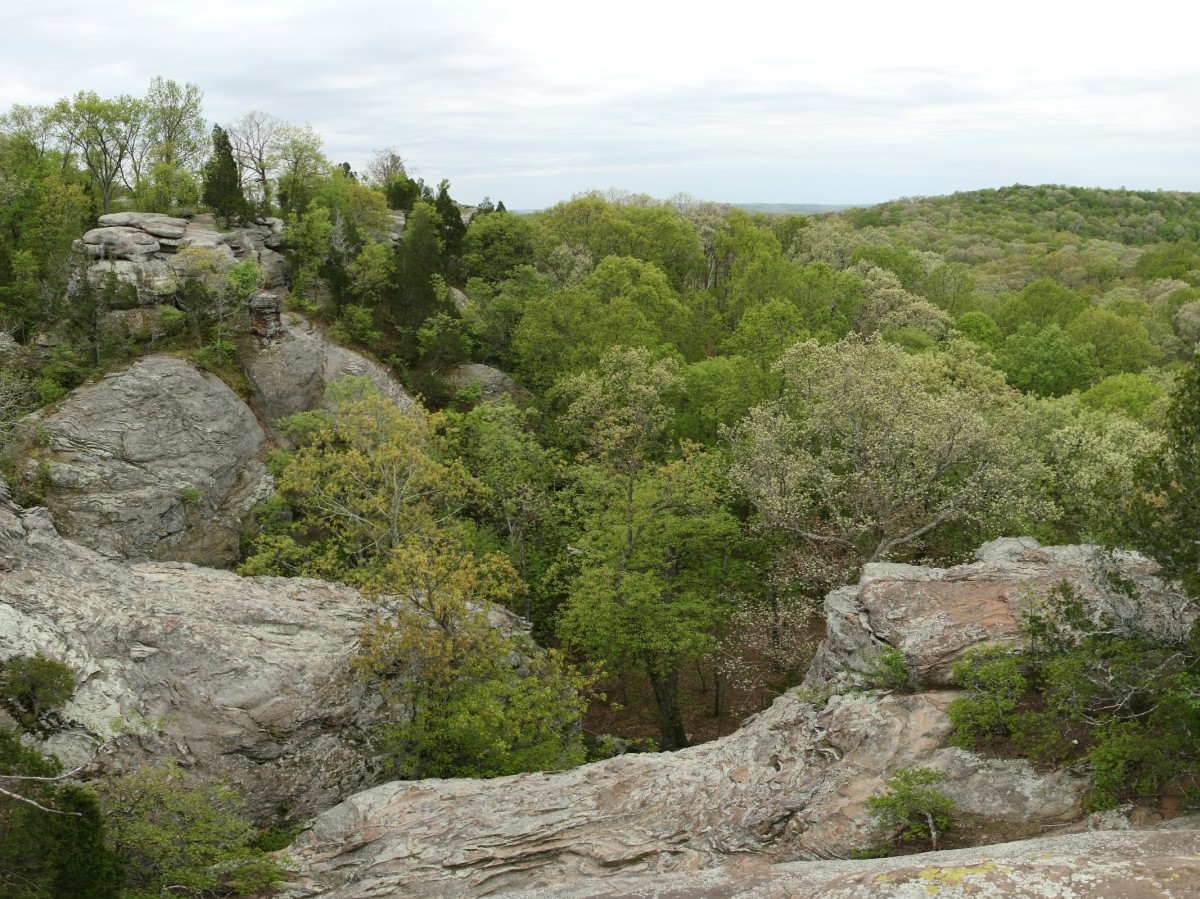
It’s known as the Garden of Gods, and for those who frequent the Shawnee National Forest, there’s a reason for that. Treasured for its nearly 300,000 acres of rolling bluffs, lakes, streams and forests, it’s a mecca for the state’s nature enthusiasts, providing miles of hiking trails and some of the nation’s most pristine fishing sites.
Now that very forest could be up for grabs by the oil industry after an injunction on drilling on Shawnee land was lifted by a federal judge.
A recent Illinois State Geological Survey estimate indicates that the Shawnee National Forest is home to some of the state’s most “mature” oil sources. Now, up to 197,000 acres of that land could be up for grabs, depending on the actions of the state Legislature.
What happened?
In 1996, logging and drilling in the Shawnee National Forest was deemed off limits by a permanent injunction from federal judge J. Phil Gilbert. In order for that injunction to be reversed, the Forest Service would have to submit a detailed plan addressing the concerns Gilbert had at the time of the injunction.
In 2006, the Forest Service did just that, seeking to release the Shawnee National Forest from the injunction. In February 2012, Gilbert heard arguments from the Forest Service and local environmental organizations.
In March 2012, the injunction was lifted.
Gilbert noted in his order that “circumstances have significantly changed since the injunction was issued.”
This riled environmental and recreational advocates, who looked at the forest as a unique source of natural beauty in a state that lacked public space.
The Audubon Council of Illinois, along with the Regional Association of Concerned Environmentalists, fought back. They claimed that the forest has made tremendous strides since the injunction, recording successful population growth among endangered species.
“This is a setback for people who want to protect the Shawnee and a victory for people who are willing to sacrifice our natural heritage for a quick, short-term profit,” environmentalist Sam Stearns told The Southern. “The bottom line is it allows the resumption of the Forest Service’s money-losing timber program as well as oil and gas drilling.”
Illinois is ranked 48th in the nation for the amount of public lands set aside, according to the U.S. Forest Service. The land is precious to those who seek refuge in the natural beauty of the Shawnee.
A battle for forest, neighborhoods
The court ruling has led the state’s prized Shawnee Forest to be considered the next target for hydraulic fracturing, a process by which a concoction of water, silica salt and chemicals are plummeted into the earth to break up and provide access to oil hidden deep beneath the surface. The method isn’t always welcomed by those living near fracking sites, as the industry has led to oil spills and water contamination.
Jim and Annette McMichael live near the Shawnee Forest. Their stakes in the drilling of forest land is high, as they don’t technically own the mineral rights below their property. As they told the Chicago Tribune, oil companies could potentially drill on their land — and that has them a little nervous.
The McMichaels have joined their voices with hundreds of others around the state that have called for a moratorium, questioning an industry that in the 1990s left more than 4,000 abandoned oil wells behind in Illinois.
According to Illinois Department of Natural Resources documents obtained by the Natural Resources Defense Council, “high-volume” oil drilling is already being carried out in Illinois. This isn’t news to residents of Illinois, but it serves as an example for anti-fracking advocates of the urgency behind the moratorium.
The documents were revealed as the state House mulls a bill that would institute regulations on the industry.
While intended to serve as a compromise for environmentalists and the oil industry, those working to protect the forest say the bill is anything but a compromise. Instead, it’s seen as a green light to oil companies to start drilling.
The bill has made its way through committee and is due for a vote on the House floor. It has widespread support from the labor and oil industries. Gov. Pat Quinn has stated his support for the bill, promising to sign it when it reaches his desk.
“It’s ridiculous that our lawmakers see hydraulic fracturing as an opportunity for our state,” Angie Viands, a member of the environmental group Rising Tide Chicago, said in a press release. “Out of state corporations will be making most of the money while residents and our climate will be suffering from this polluting industry.”


